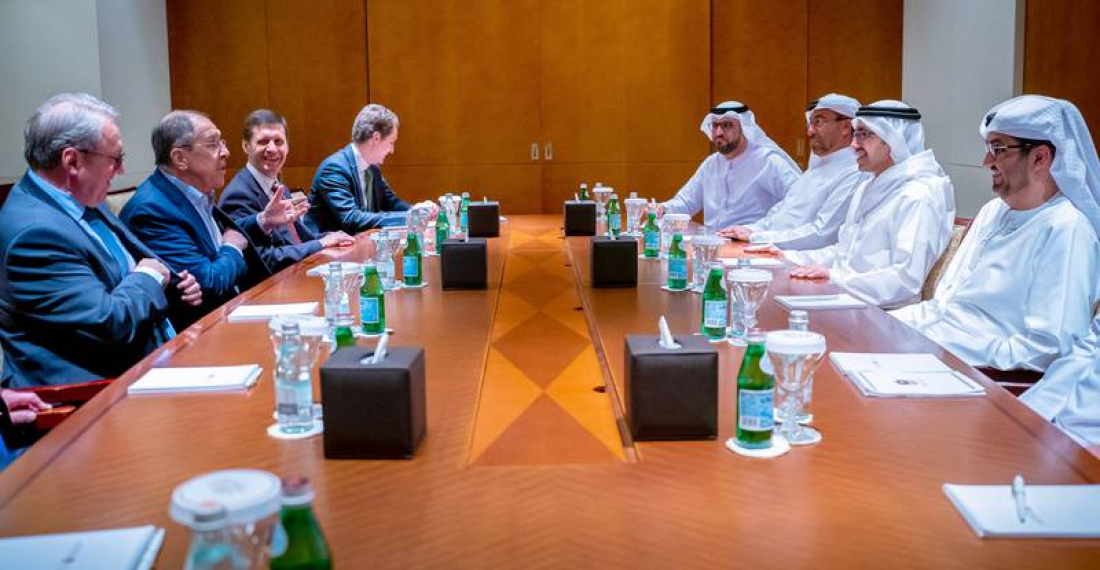Russian foreign minister Sergei Lavrov is on a charm offensive trip to the Gulf region. On Thursday he was in Abu Dhabi, travelling there from Amman where he met King Abdallah of Jordan and other Jordanian officials.
In the UAE capital, Lavrov held meetings with Sheikh Abdullah bin Zayed, Minister of Foreign Affairs and International Co-operation. The Emirati state news agency, WAM, said that the two discussed the strategic partnership between the UAE and Russia.
"Sheikh Abdullah also expressed his pride in the outcome of a meeting between President Sheikh Mohamed and Russian President Vladimir Putin during the UAE leader's visit to Saint Petersburg last month", the agency said. “The presidential meeting reflected the rapid growth in co-operation between the two countries,” Sheikh Abdullah added.
After the meeting, he hosted a dinner for Mr Lavrov and his delegation.
The meeting was attended by Dr Sultan Al Jaber, Minister of Industry and Advanced Technology, Ahmed Al Sayegh, Minister of State, and Dr Mohamed bin Sultan Al Jaber, the UAE ambassador to the Russian Federation.
Since launching its invasion of Ukraine in February Russian diplomacy has been very active in the Arab world which it considers is sympathetic to its position. But in the Gulf Lavrov will have to reconcile Russia's overtures with its close relations with Iran.
Lavrov speaks to Iranian counterpart
Before travelling to Abu Dhabi, on Wednesday Lavrov had a telephone conversation with Minister of Foreign Affairs of Iran Hossein Amirabdollahian.
The website of the Russian foreign ministry said that "the parties exchanged views on topical regional issues with an emphasis on the current situation in the Persian Gulf. The commonality of the positions of Moscow and Tehran in favor of overcoming all the contradictions that exist here by political and diplomatic means, taking into account the interests of the Middle Eastern states, was confirmed. The harmfulness of the information campaign launched by the Western media is noted, which, in the conditions of a difficult international situation, can turn into a dangerous escalation of tension in this strategically important area of the world."
The foreign ministers also touched on the "situation in the South Caucasus and a number of other issues of mutual interest".






